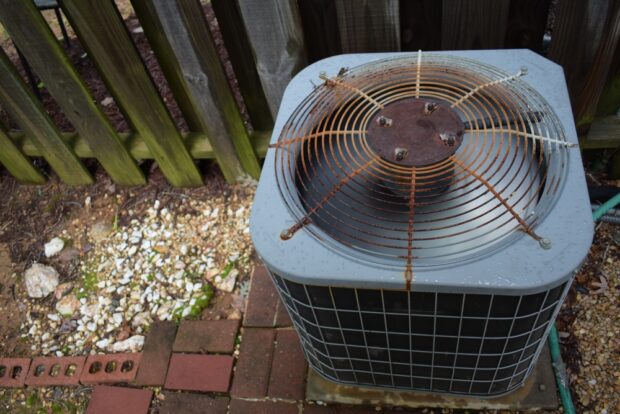Living along the coast comes with many perks: scenic views, fresh ocean breezes, and access to the best seafood. However, these advantages come with some significant challenges, especially when it comes to maintaining your home’s HVAC system. Wilmington, North Carolina, with its coastal charm, is no stranger to the salty air and high humidity that can cause severe damage to HVAC systems over time. If you’re a homeowner in this beautiful area, understanding the impact of Wilmington’s coastal climate on your HVAC system is essential. The salty sea breeze and the unique challenges of living by the ocean require a proactive approach to protecting your HVAC system from salt and corrosion.
The Impact of Coastal Climate on HVAC Systems
Living by the coast, whether in Wilmington, NC, or other coastal areas, subjects HVAC systems to harsh environmental factors that significantly shorten their lifespan. Salt air, combined with high humidity levels, accelerates the corrosion process. Salt particles in the air cling to metal components, including the outdoor unit of your HVAC system. These particles can infiltrate the system, causing rust and corrosion that degrade the system’s performance over time.
While HVAC systems are designed to withstand weather conditions, coastal environments, with their salty air and frequent storms, are more challenging. The accumulation of salt on coils, fins, and other essential parts can block airflow, reducing the unit’s efficiency. This can result in increased energy bills and an overworked system that is prone to breakdowns. Additionally, corrosion on vital components, such as the evaporator and condenser coils, can lead to leaks or total system failure if left unchecked.
As the salt air works its way into the delicate components of your HVAC system, even minor exposure can cause irreversible damage. Over time, these issues can affect the reliability of your HVAC system, especially if you are unaware of the impact coastal elements have on the system. Therefore, regular HVAC maintenance becomes crucial in Wilmington’s coastal climate to ensure long-term functionality.
Protecting Your HVAC System from Salt Air Damage
In Wilmington, protecting HVAC systems from salt corrosion requires attention to detail, and the first step is choosing durable equipment. Opting for HVAC units designed for coastal climates is an investment that pays off in the long run. Many manufacturers offer systems that are specifically made with corrosion-resistant components. These units are equipped with materials and coatings that prevent salt from accumulating on critical components, which can dramatically reduce the likelihood of corrosion.
One of the best preventive measures is to install a system with specialized protective coatings on the outdoor unit. These coatings act as a barrier between the system’s metal parts and the salt-laden air. When shopping for an HVAC system, be sure to consult with a professional HVAC technician who is familiar with Wilmington’s coastal conditions. They can recommend durable HVAC systems that are designed to withstand salt air damage while maintaining energy efficiency.
In addition to installing corrosion-resistant units, regular cleaning and inspection are essential. Over time, salt particles can accumulate on the exterior of the unit, clogging air vents and blocking the airflow. This can cause your HVAC system to overheat and break down prematurely. Regularly washing the outdoor unit with fresh water can help remove salt buildup, keeping your system clean and functioning properly.
HVAC Maintenance and Inspections for Wilmington’s Coastal DE Climate
Proper HVAC maintenance is key to ensuring your system lasts longer and operates efficiently in Wilmington’s coastal environment. Coastal DE climate conditions require more frequent checks compared to inland areas. One of the first steps is ensuring your HVAC system’s outdoor unit is properly installed and has enough clearance for airflow. If the unit is located near saltwater or exposed to constant winds, it should be checked more frequently for salt buildup and signs of wear.
During routine HVAC maintenance, a technician will inspect vital components, including the condenser coils, evaporator coils, and refrigerant lines. They will clean the coils and remove any debris or salt residue that could lead to corrosion. They may also lubricate moving parts and check the system’s refrigerant levels. If you live in Wilmington, scheduling bi-annual HVAC inspections is a good idea, especially before summer and winter when the system will be working at its hardest.
Additionally, many HVAC systems in coastal regions come with a special coating that helps prevent corrosion. Even with this protection, regular inspections help ensure the coating remains intact and that no salt air has penetrated the system. It is also important to check the air filters regularly and replace them as needed, as clogged filters can lead to poor air quality and reduced efficiency.
If your HVAC system shows signs of corrosion, such as rust spots or leaks, it’s essential to address the issue immediately. Corroded parts can be replaced with more durable materials that resist saltwater exposure. If ignored, the corrosion can spread, leading to expensive repairs or a total system failure. Keeping a close eye on your system and maintaining it regularly is crucial to avoiding these issues and ensuring the longevity of your HVAC unit in Wilmington’s coastal climate.
The Importance of Corrosion Prevention in Wilmington
Wilmington’s coastal location means that homeowners must prioritize corrosion prevention to safeguard their HVAC systems. The key to preserving your system lies in preventative maintenance, choosing corrosion-resistant materials, and installing the right equipment. The salt and moisture in the air can severely compromise the integrity of HVAC units, but by taking proactive steps, homeowners can significantly reduce the risk of corrosion.
Corrosion prevention begins with selecting HVAC systems built to withstand Wilmington’s coastal conditions. High-quality outdoor units designed with corrosion-resistant coatings or materials like aluminum or stainless steel are a smart investment. These units are more capable of standing up to the wear and tear of salty air, reducing the frequency of repairs and extending the system’s overall lifespan.
In addition to selecting a corrosion-resistant system, homeowners can take several steps to protect their HVAC equipment from salt damage. Installing a windbreak around the outdoor unit can reduce the amount of direct salt exposure. Placing the unit away from areas with heavy saltwater spray or high humidity will also help prolong its lifespan. Using a protective cover during extreme weather conditions, such as tropical storms or hurricanes, can further reduce the impact of salt air on the system.
Regular cleaning and inspection, as discussed earlier, also play a significant role in corrosion prevention. It’s not enough to install a durable HVAC system and hope for the best. Routine cleaning, especially of the outdoor unit, ensures that salt does not accumulate and cause long-term damage. Technicians can also apply special corrosion-resistant sprays to key components to provide extra protection.
Durable HVAC Systems for Wilmington Coast
Given the challenges Wilmington’s coastal environment presents, homeowners must consider durable HVAC systems built to withstand salt and corrosion. These HVAC systems are often designed with features like protective coatings, rust-resistant coils, and corrosion-resistant housings. By choosing the right system, you can ensure your HVAC equipment stands up to Wilmington’s harsh coastal elements.
The durability of these systems is essential because replacing an HVAC unit or its components due to salt and corrosion damage can be costly. A well-maintained, corrosion-resistant HVAC system can offer years of reliable performance while providing year-round comfort in your home. For residents of Wilmington, investing in a durable HVAC system not only protects your system but also helps you avoid the inconvenience of frequent repairs.
The key to a long-lasting HVAC system is a combination of choosing durable equipment and committing to regular HVAC maintenance. By taking these measures seriously, you can reduce the effects of salt air damage and keep your system running smoothly for many years. As a coastal homeowner in Wilmington, ensuring that your HVAC system is protected from the damaging effects of salt and corrosion should be a top priority for both your comfort and your wallet.
Conclusion
By understanding the unique challenges Wilmington’s coastal climate poses and taking the necessary steps to protect your HVAC system, you can enjoy the many benefits of coastal living without worrying about the longevity and performance of your home’s heating and cooling system.
Need Commercial Appliance Repair in Wilmington, DE?
Since 1984, Commercial Equipment Service Inc. has been providing service and sales of commercial/restaurant cooling, refrigeration and heating equipment to Wilmington, Delaware and the surrounding area. We are a locally owned business with over 42 years of experience. Our friendly staff prides itself on our professional attitude and service. Commercial Equipment Service Inc. is a 24/7 on-call service for your appliance needs! We install and repair all refrigeration and cooking equipment, heating and air conditioning, emergency generator sales, kitchen exhaust systems, beverage systems and so much more. Contact us today to learn more about what we can do for you!

